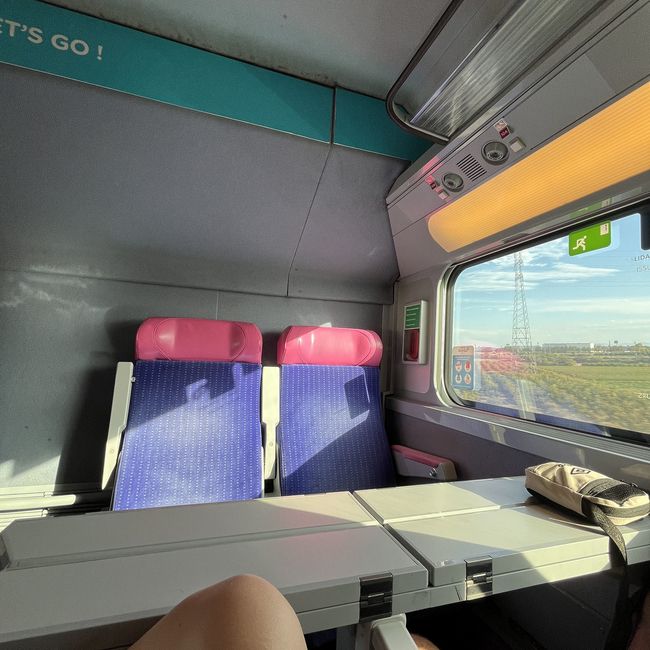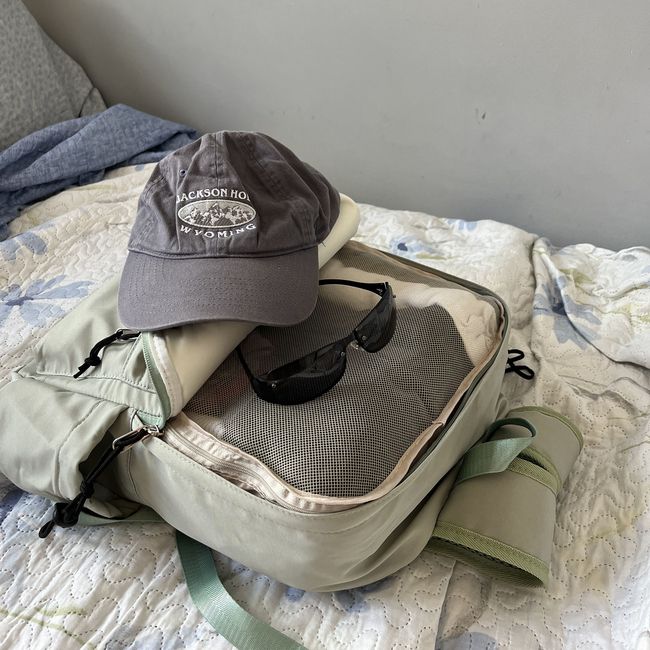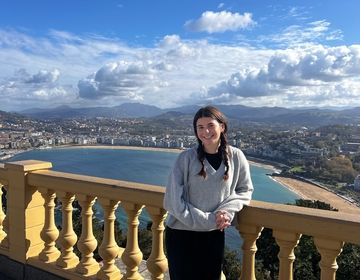Budgeting (and enjoying!) your study abroad experience
By: Anneliese Crayton
Hi! My name is Lisee, and I am currently studying abroad in Madrid. I saw the opportunity to study in Spain as a great way to explore as much of Europe as I can in 15 weekends, and have seriously taken that to heart. Flying across the continent every week is NOT cheap, however, so it’s important to set reasonable expectations with yourself before you arrive in your host country. Here are my top 5 tips for keeping your semester abroad within a realistic budget.
1. Have a clear, firm budget before each trip
At the beginning of your time abroad, it may seem like a great idea to immediately hop on a plane to the most exotic and famous destinations (hey Ibiza!) without thinking about how much they will cost, which may lead to you spending much more of your money than you meant to much earlier than you should have. My #1 piece of advice is to have a concise, firm budget for each weekend you plan to travel - including flights and hostels- and strictly sticking to that budget once you’re there. Keep in mind that some countries are MUCH more expensive than others (Sweden sandwich $18 vs. Portugal sandwich $4) and your budget should reflect this. My budgets for weekend trips have ranged from $100 (Valencia) to $600 (Istanbul), so it’s important to do your research on how much your weekend will cost before you go!
2. Planes aren’t the only way
If you’re in a bigger city, chances are you have a train station and can take long-haul trips to surrounding cities/countries. Trains are often a similar (or cheaper) price, are less crowded, and in my opinion are a much more comfortable way to get around. Buses are even cheaper!
Blissfully empty train to Valencia
3. Don’t overpack on budget airlines
If you must travel by plane, the ONLY cheap way to do so is by taking budget airlines. Some may warn against taking airlines such as RyanAir, WizzAir, or EasyJet, but, in my opinion, their low prices are worth the extra hassle and *slight* risk of them canceling your flight. To save even more, allow the airline to choose the seat for you (saving ~$20 per trip) and don’t get an extra bag (saving ~$40 per trip). Only bring the amount of stuff that fits in a school-size backpack, which is honestly all you need for a 3-day weekend.
My weekender-size backpack
4. Hostels 1000%
Hostels are extremely cheap, safe, and clean throughout most parts of Europe, ranging from $18-$40 a night depending on the country. I often choose a female-only dorm, which is luckily only a few more dollars per night. Bringing a padlock and flip flops is crucial. Some hostels also provide breakfast, saving you even more money to go towards other experiences.
5. Don’t be afraid to go by yourself!
Solo trips are great for last-minute cheap bookings, as the only person you need to coordinate with is yourself. Skyscanner.es shows cheap, last-minute flights from your destination to anywhere, often leading to trips on a whim. While some people might not be comfortable traveling alone, I think it’s a great way to get out of your comfort zone and explore some new areas. My solo trip to Stockholm and Brussels was one of the most relaxing and freeing weekends that I have had this fall, because it gave me the opportunity to do what I wanted all day, every day - including buying more than a healthy amount of Swedish candy, going to way too many flea markets, and walking more than anyone ever should. Most of the people I have met in hostels are solo travelers themselves, and are always down to chat or grab food.
Solo trip = Swedish candy & long walk
Studying abroad has proved to be, and still is, one of the best (if not most expensive) times of my life, and I wouldn’t trade it for anything. With the proper budgeting tools, you can make your study abroad experience a little less stressful and go on all the trips you’re dreaming of. Safe travels <3
Related Posts
Fluent in Life: Lessons from Studying Abroad in Spain
By: Gabby Watts Growing up, my mom would always tell me stories about her year studying abroad in London. She raved about the experience and how much it taught her... keep reading
Why Studying Abroad in Seville Was the Best Decision I Ever Made
By: Tatia Goldberg My CIEE abroad experience is something that I would never change. I felt so acclimated and comfortable with the city and the culture. Transportation was extremely accessible... keep reading
Sevilla v. Betis: The Rivalry
By: Graham Kreppein As a study abroad student in Seville, immersing myself in the local culture has led me to one of the most fascinating aspects of life here: the... keep reading






